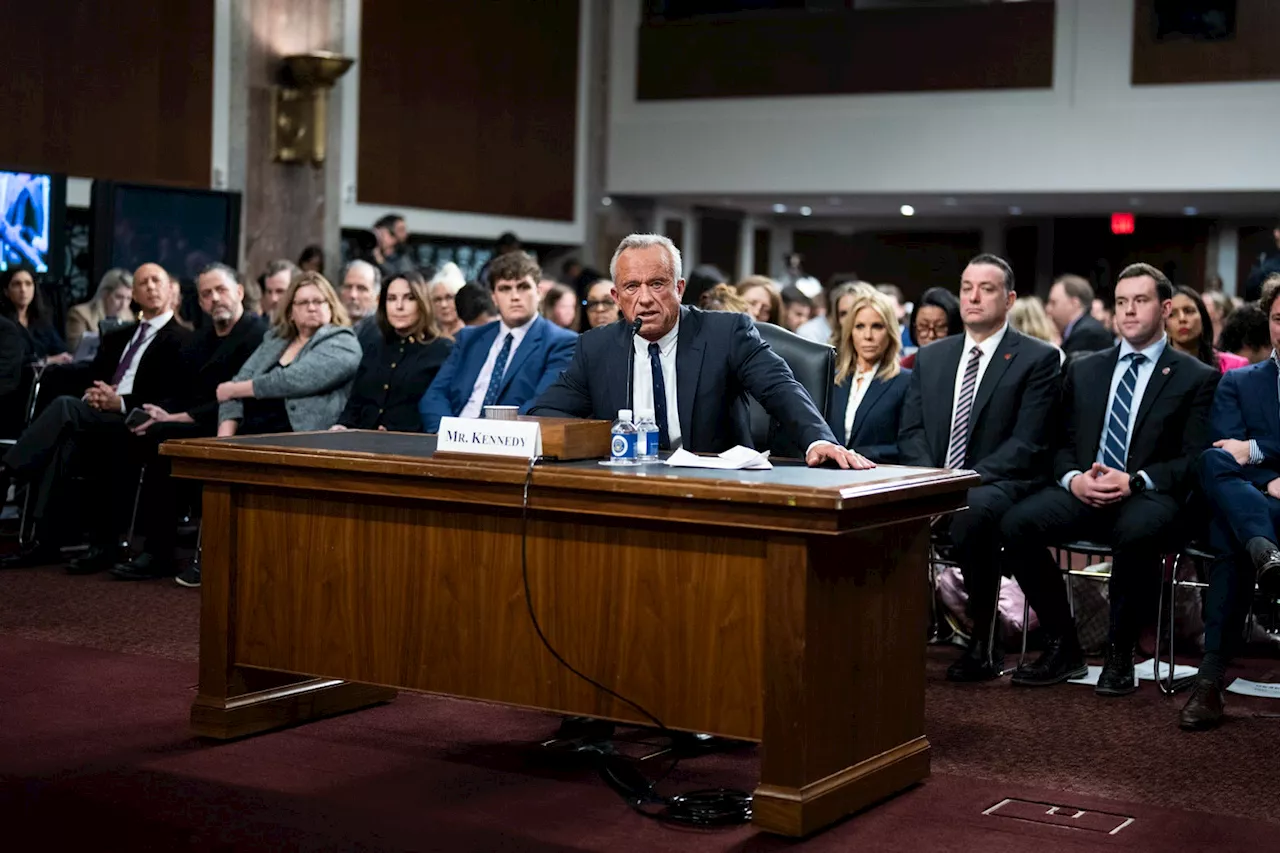Robert F. Kennedy Jr.'s first confirmation hearing for the Department of Health and Human Services was a highly charged affair, reflecting the deep divisions surrounding his nomination. While Republicans voiced support for his stances on issues like abortion and food production, Democrats emphasized concerns about his past statements on vaccines and public health.
Much of Robert F. Kennedy Jr. ’s first of two confirmation hearings to run the Department of Health and Human Services focused on the root of his controversial appointment: His provocative past statements on vaccines, mainstream medicine, and public health, and—for Republicans—his long pro-choice history and targeting of mass food production.
The contentious, lively hearing, though, also shone a spotlight on another significant issue with Kennedy’s nomination that’s been underdiscussed relative to his more peculiar outbursts: his qualifications to administer a major department overseeing a quarter of what the federal government spends. \The atmosphere in the Senate Finance Committee room was unlike any other confirmation hearing I’ve been to. During the hearing, North Carolina Sen. Thom Tillis would describe the polarizing nomination as a “shirts and skins game” between Democrats and Republicans on the panel. That was also true of the public attendees. Devotees of his “Make America Healthy Again” movement—and say what you will about RFK Jr., but ita movement—packed one side of the room and the immediate rows of chairs behind Kennedy. The supporters’ standing ovation when Kennedy was escorted into the room by his wife, actress Cheryl Hines, would not be the day’s last standing ovation, and it didn’t take much for the section to erupt in applause every few minutes. As Kennedy would say, many of them were “MAHA Moms.” When Wisconsin Sen. Ron Johnson delivered a speech encouraging the country to come together to solve the American epidemic of chronic sickness, I watched one MAHA Mom reach the verge of tears and hold a heart-shaped hand gesture in the air.On the other side, meanwhile, were medical professionals and activists, many of them in lab coats, cheering or snickering whenever Democrats on the committee would land a blow. A couple of anti-RFK protesters, too, interrupted early in the hearing and were dismissed. The alternating outbursts made it feel more like a prize fight over competing visions of public health than a staid Senate examination of a presidential appointee. In other words, it was appropriate. \Republicans on the panel, while supportive of Kennedy to varying degrees, had their own work to do in their rounds of questioning. Kennedy has a couple of liabilities on the right: his lifelong support for legalized abortion, for one, and his attacks on the practices of Big Agriculture, aka the economic bedrock of many rural red states, for another. Oklahoma Sen. James Lankford used his time to hold Kennedy’s hand as the nominee explained that “every abortion is a tragedy,” and that he would serve at the pleasure of the president and would implement his policies. And regarding mass food production, Kennedy insisted that “American farms are the bedrock of our culture, of our politics, of our national security,” and said that he wanted to “remove burdensome regulations and unleash American ingenuity.” Some Democrats on the committee would, nevertheless, use their time to reiterate some of Kennedy’s past statements on these issues in likely failed attempts to drive a wedge among Republicans.Kennedy’s argument, overall, was that he wasn’t trying to ban vaccines, medications, or food products, just to provide more transparency on what the government knows about them. If you like “a McDonald’s cheeseburger, Diet Coke, which my boss loves, you should be able to get them,” he said to chuckles. “If you want to eat Hostess Twinkies, you should be able to do that, but you should know what the impacts are on your family and on your health.” Similarly, he said that “I support the measles vaccine. I support the polio vaccine. I will do nothing as HHS secretary that makes it difficult or discourages people from taking anything.”But Kennedy’s record as an activist, author, lawyer, and candidate running in protest of vaccinations or other settled elements of public health is long. The easiest work for Democrats on the panel was to simply read his quotes and ask him whether he said them or not.that COVID-19 was a genetically engineered bioweapon that targets Black and white people but spares Ashkenazi Jews and Chinese people?” Colorado Sen. Michael Bennet began in a testy exchange.“Did you say that exposure to pesticides causes children to become transgender?”Plenty of Democrats had such exchanges with Kennedy. One of the most notable, though, was Vermont Sen. Bernie Sanders. Sanders has been a particular question mark among Democrats on Kennedy, repeatedly praising Kennedy for his views against processed foods and federal nutrition policy. But Sanders—who will lead Democrats in Thursday’s second hearing—did not seem to be on the fence Wednesday.Sanders showed two posters of onesies that Children’s Health Defense, founded by Kennedy, was selling in its merch shop. (“These are little things, clothing for babies,” Sanders explained.) One onesie said “Unvaxxed, Unafraid,” and the other “No Vax, No Problem.”Louisiana Sen
HEALTHCARE CONFIRMATION HEARINGS ROBERT F. KENNEDY JR. DEPARTMENT OF HEALTH AND HUMAN SERVICES VACCINES PUBLIC HEALTH REPUBLICANS DEMOCRATS UNITED STATES SENATE
United States Latest News, United States Headlines
Similar News:You can also read news stories similar to this one that we have collected from other news sources.
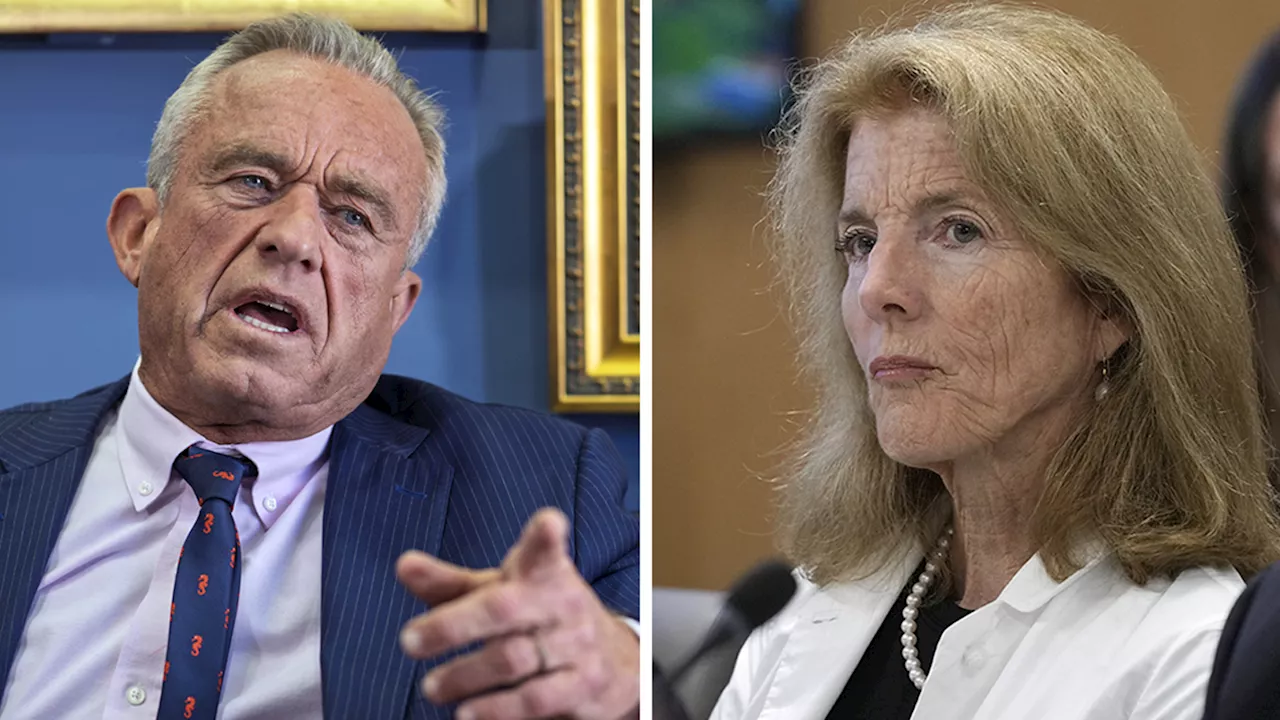 Caroline Kennedy Slams Cousin Robert F. Kennedy Jr. as 'Predator' in scathing HHS Confirmation LetterCaroline Kennedy, daughter of former President John F. Kennedy, wrote a scathing letter to senators ahead of Robert F. Kennedy Jr.'s confirmation hearing for HHS secretary. She accused him of being unqualified, a predator, and of exploiting the desperation of parents of sick children.
Caroline Kennedy Slams Cousin Robert F. Kennedy Jr. as 'Predator' in scathing HHS Confirmation LetterCaroline Kennedy, daughter of former President John F. Kennedy, wrote a scathing letter to senators ahead of Robert F. Kennedy Jr.'s confirmation hearing for HHS secretary. She accused him of being unqualified, a predator, and of exploiting the desperation of parents of sick children.
Read more »
 Caroline Kennedy Calls Cousin Robert F. Kennedy Jr. a 'Predator' in HHS Confirmation LetterCaroline Kennedy, in a letter to senators, criticized her cousin Robert F. Kennedy Jr., President-elect Trump's nominee for HHS, calling him a 'predator' who has misled the public about vaccines. She accused him of hypocrisy for discouraging vaccination while vaccinating his own children and of using his influence to lead family members down a path of drug addiction.
Caroline Kennedy Calls Cousin Robert F. Kennedy Jr. a 'Predator' in HHS Confirmation LetterCaroline Kennedy, in a letter to senators, criticized her cousin Robert F. Kennedy Jr., President-elect Trump's nominee for HHS, calling him a 'predator' who has misled the public about vaccines. She accused him of hypocrisy for discouraging vaccination while vaccinating his own children and of using his influence to lead family members down a path of drug addiction.
Read more »
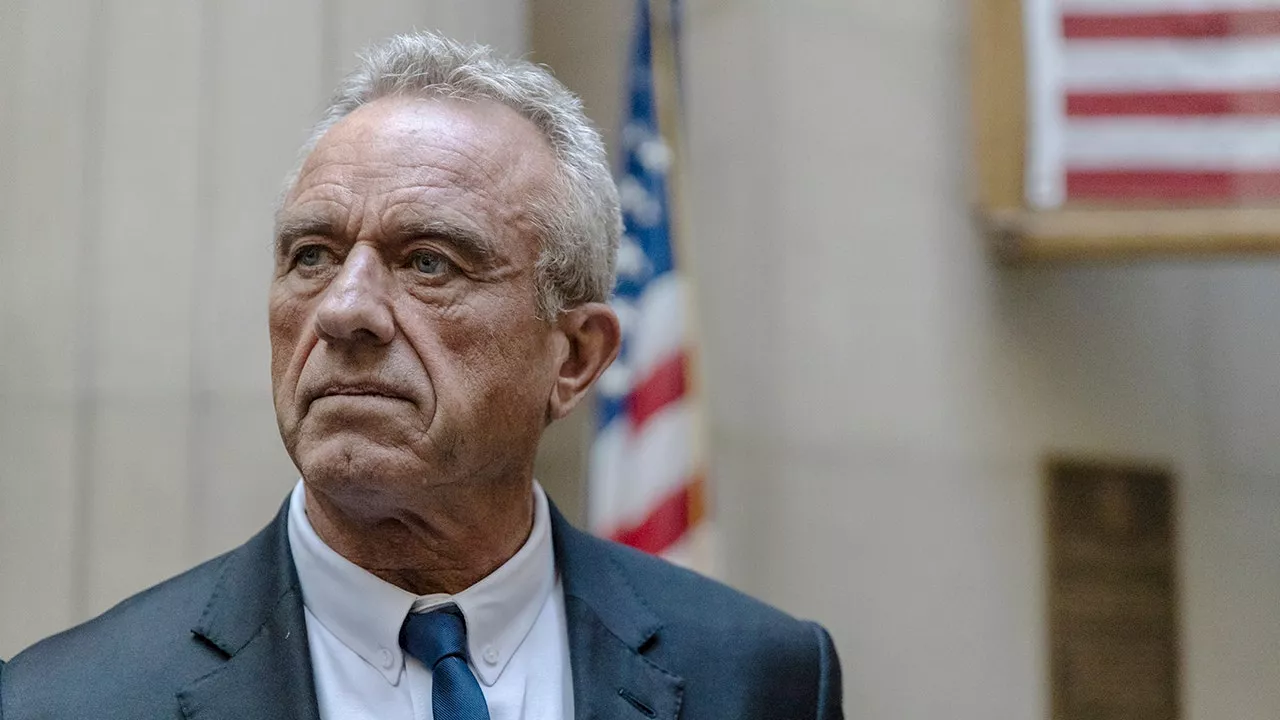 Robert F. Kennedy Jr.'s HHS Confirmation: Balancing Potential and ControversyThis article explores the nomination of Robert F. Kennedy Jr. to lead the Department of Health and Human Services, highlighting both his potential contributions and the controversies surrounding his past statements. It analyzes the challenges and opportunities for Kennedy's confirmation, emphasizing the need for a balanced approach to public health.
Robert F. Kennedy Jr.'s HHS Confirmation: Balancing Potential and ControversyThis article explores the nomination of Robert F. Kennedy Jr. to lead the Department of Health and Human Services, highlighting both his potential contributions and the controversies surrounding his past statements. It analyzes the challenges and opportunities for Kennedy's confirmation, emphasizing the need for a balanced approach to public health.
Read more »
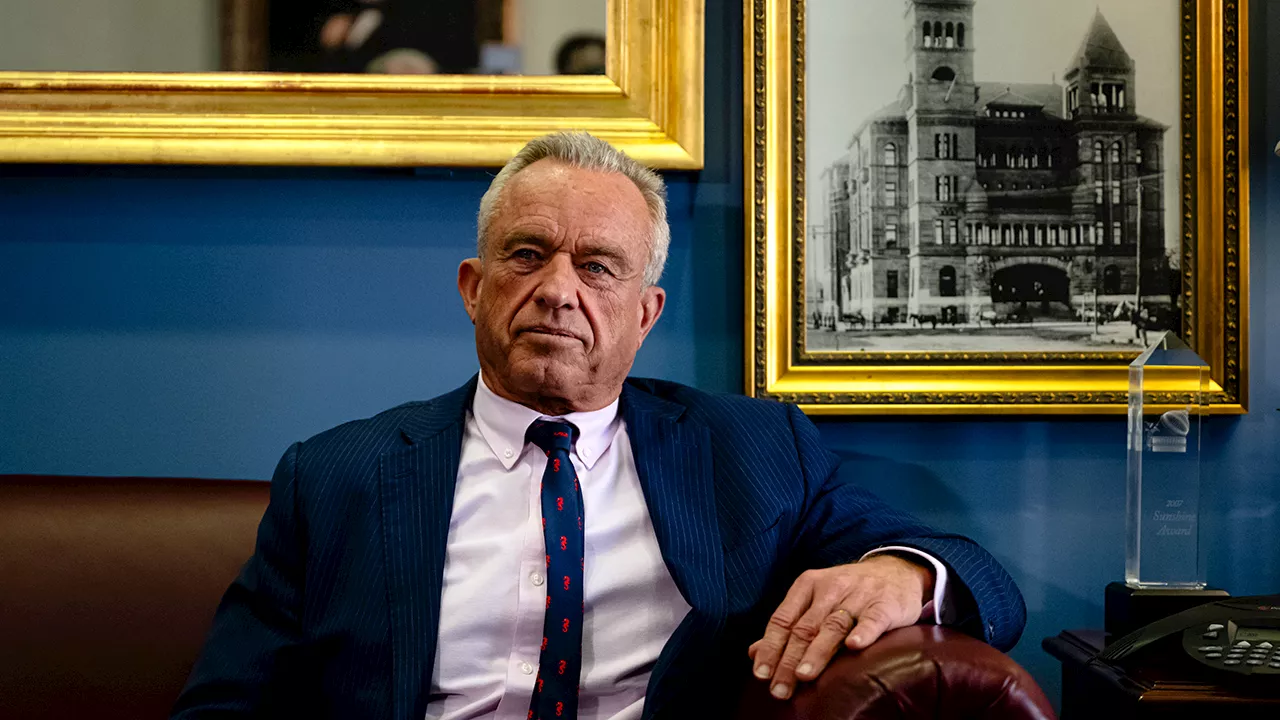 Robert F. Kennedy Jr. to Emphasize 'Pro-Safety' Stance at HHS Confirmation HearingRobert F. Kennedy Jr., President Donald Trump's nominee for Secretary of Health and Human Services, will highlight his commitment to safety during his Senate confirmation hearings. Kennedy aims to address concerns about his vaccine views, stating that he is neither 'anti-vaccine' nor 'anti-industry,' but rather 'pro-safety.' He will also emphasize his support for American farmers and his plan to overhaul dietary guidelines and address chronic diseases.
Robert F. Kennedy Jr. to Emphasize 'Pro-Safety' Stance at HHS Confirmation HearingRobert F. Kennedy Jr., President Donald Trump's nominee for Secretary of Health and Human Services, will highlight his commitment to safety during his Senate confirmation hearings. Kennedy aims to address concerns about his vaccine views, stating that he is neither 'anti-vaccine' nor 'anti-industry,' but rather 'pro-safety.' He will also emphasize his support for American farmers and his plan to overhaul dietary guidelines and address chronic diseases.
Read more »
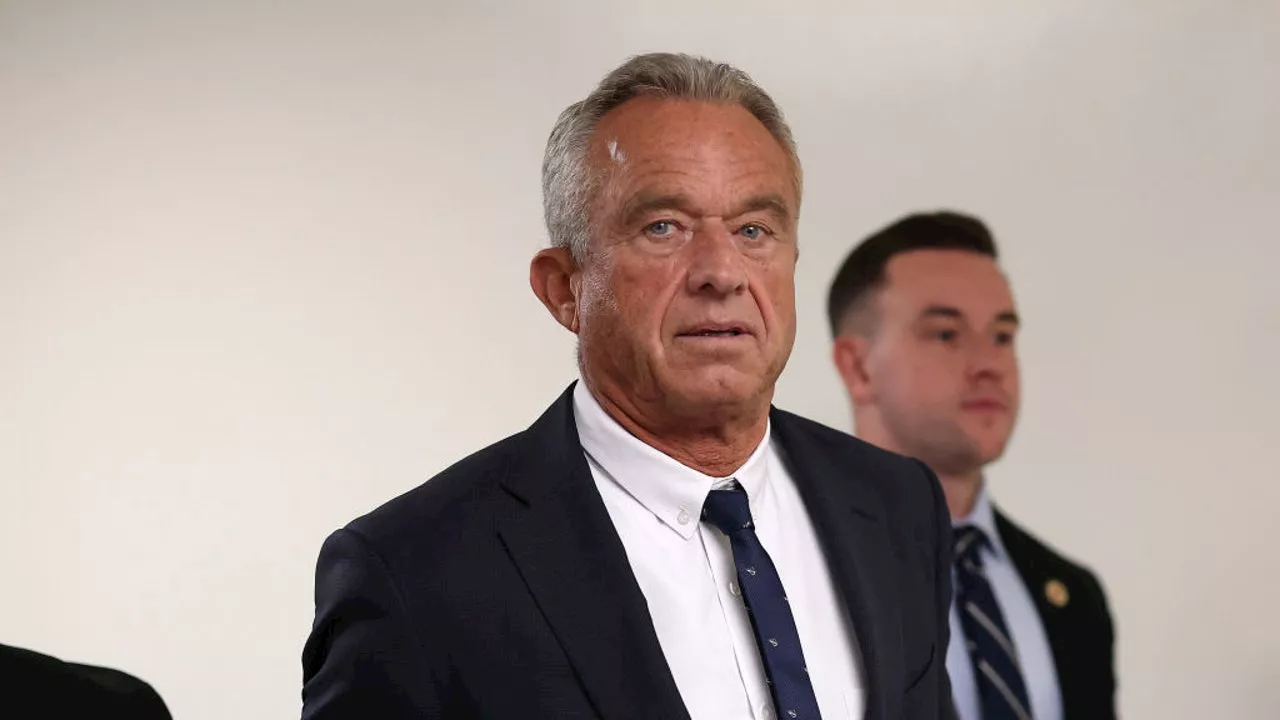 Robert F. Kennedy Jr.'s Confirmation Hearing for HHS SecretaryRobert F. Kennedy Jr. is facing Senate committees this week for his confirmation hearing to be the next Health and Human Services secretary. His nomination has sparked controversy due to his past statements regarding vaccines. Kennedy will appear before the Finance Committee on Wednesday and the Health Committee on Thursday.
Robert F. Kennedy Jr.'s Confirmation Hearing for HHS SecretaryRobert F. Kennedy Jr. is facing Senate committees this week for his confirmation hearing to be the next Health and Human Services secretary. His nomination has sparked controversy due to his past statements regarding vaccines. Kennedy will appear before the Finance Committee on Wednesday and the Health Committee on Thursday.
Read more »
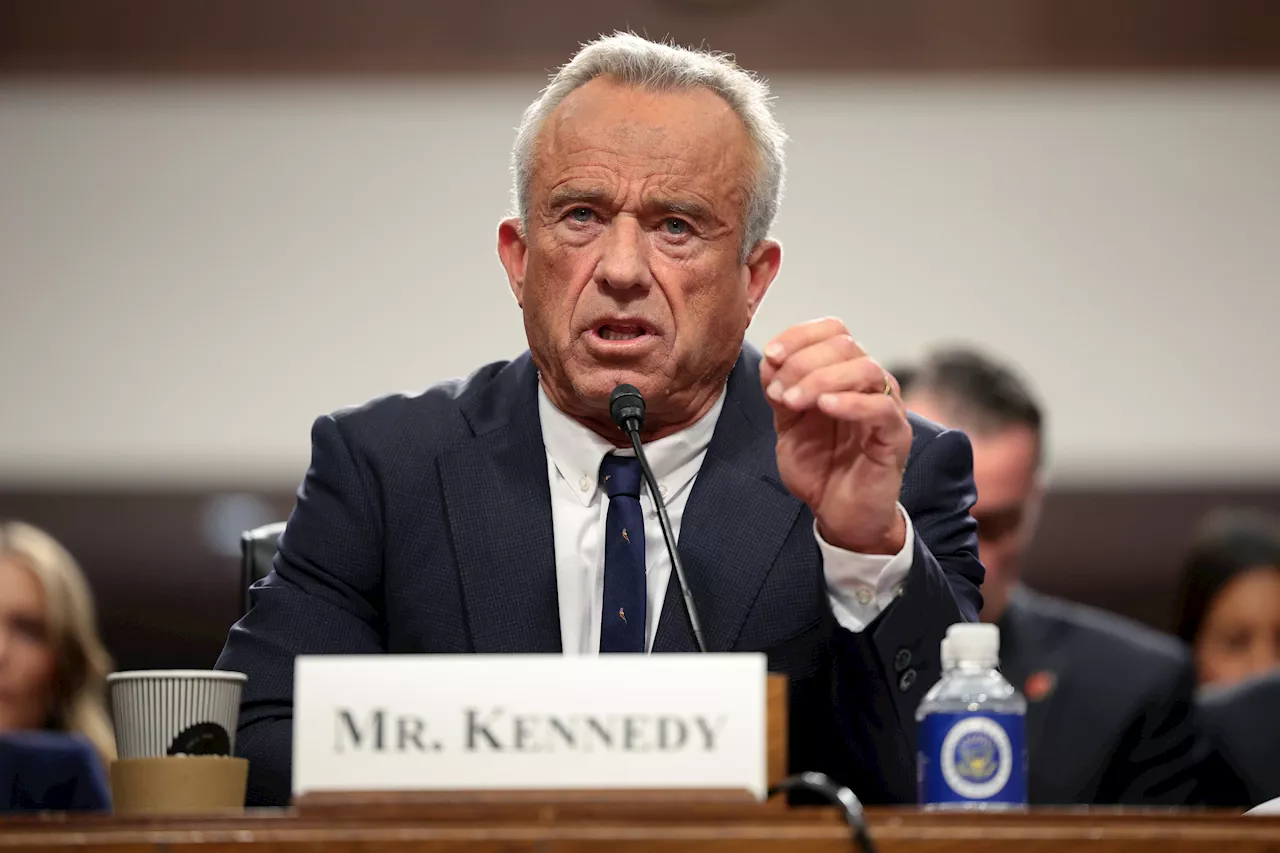 Robert F. Kennedy Jr. Faces Senate Scrutiny in HHS Confirmation HearingRobert F. Kennedy Jr. faced intense questioning from senators during his confirmation hearing for the position of Health and Human Services Secretary. Democrats scrutinized his views on vaccines, while Republicans expressed concerns about his past statements on issues like abortion.
Robert F. Kennedy Jr. Faces Senate Scrutiny in HHS Confirmation HearingRobert F. Kennedy Jr. faced intense questioning from senators during his confirmation hearing for the position of Health and Human Services Secretary. Democrats scrutinized his views on vaccines, while Republicans expressed concerns about his past statements on issues like abortion.
Read more »
